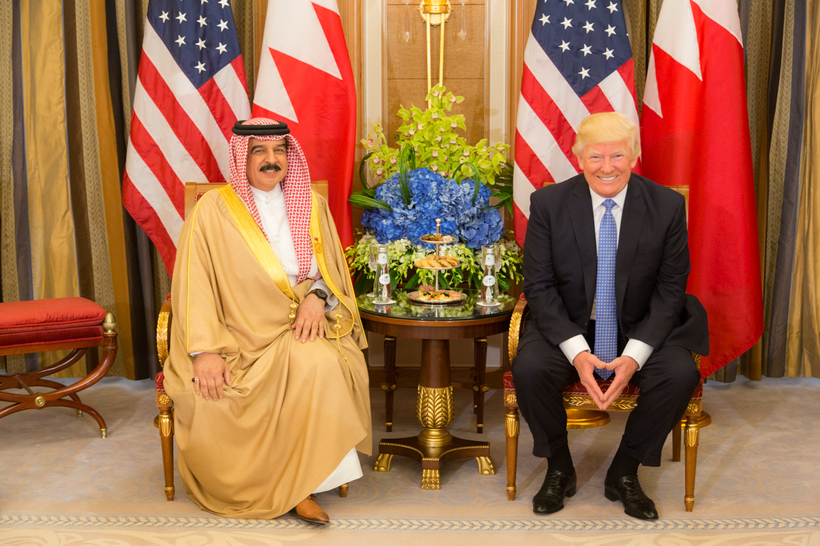News broke over the weekend that the State Department has approved a new arms deal with Bahrain worth over $3.8 billion dollars. This despite Senate Foreign Relations Committee Chairman Bob Corker (R-TN) saying in June that further arms sales to the region would be blocked until a “better understanding” emerges of how the Qatar crisis will be resolved, and despite Bahrain’s spiraling human rights environment, which has worsened significantly this year.
The implication of the arms sale should be central to tomorrow morning’s Senate hearing on the nomination of Justin Siberell, President Trump’s pick to be the new ambassador to Bahrain.
A seasoned diplomat, Siberell comes with experience in the State Department’s Bureau of Counterterrorism, and has served in other Middle East countries, including the Gulf states. But there is nowhere quite like Bahrain, which is becoming an increasingly unstable ally. In recent years Bahrain’s government vilified the U.S. ambassador, expelled a U.S. assistant secretary of state from the country, and denied at least one member of Congress entry to the kingdom.
If Siberell is to be the next ambassador, it is vital that he will not be intimidated from doing the job properly, and that he makes clear that he intends to establish and maintain relationships across Bahrain’s society, with both those who support the government and those who oppose it.
- Given that attacks on human rights activists and opposition leaders have intensified over the last year, how do you see the new arms deal as encouraging reform in Bahrain?
- Sectarian discrimination against Bahrain’s Shia community remains entrenched in several areas, including in the country’s almost exclusively—Sunni security forces. Last month Secretary of State Rex Tillerson publicly declared that “Bahrain must stop discriminating against the Shia communities.” And earlier this year, at the United Nations Human Rights Council the U.S. government, urged Bahrain to “create a more diverse, inclusive police force, reflective of society.” As ambassador what steps will you take to ensure that happens?
- As ambassador will you regularly meet with the dwindling number of opposition figures and human rights activists who are not in prison, and publicly call for the release of those who are in jail?
- Regular reports are coming out of Bahrain that the notorious National Security Agency is again using its old methods of routinely torturing those in custody, including human rights defenders. What do you make of these reports and how do you intend persuading Bahrain’s security forces to stop abusing those in detention?
- Given your previous experience in the region, what would you recommend Washington does to encourage stability and the rule of law in Bahrain to replace the current regime of government by arbitrary detention, intimidation and torture?
- Parliamentary elections are due in the kingdom next year. What will you do to help ensure these elections are fair and not fake, and that the opposition is able to play a full part in that process?
Bahrain’s government public relations machine sometimes talks a good game, but there’s no hiding how ongoing low oil prices are exposing the country’s deeply-rooted economic problems. The country desperately needs to leave behind a political system where the king’s uncle remains as unelected prime minister, where a ruling elite mismanages the economy, and where the opposition is banned.
The coming years are likely to be difficult for the tiny kingdom, with rising food costs threatening to further political unrest. Washington will need am ambassador with a steady hand in Bahrain, willing to confront its erratic ally with hard truths about the urgent need for reform and redirection.

